
/
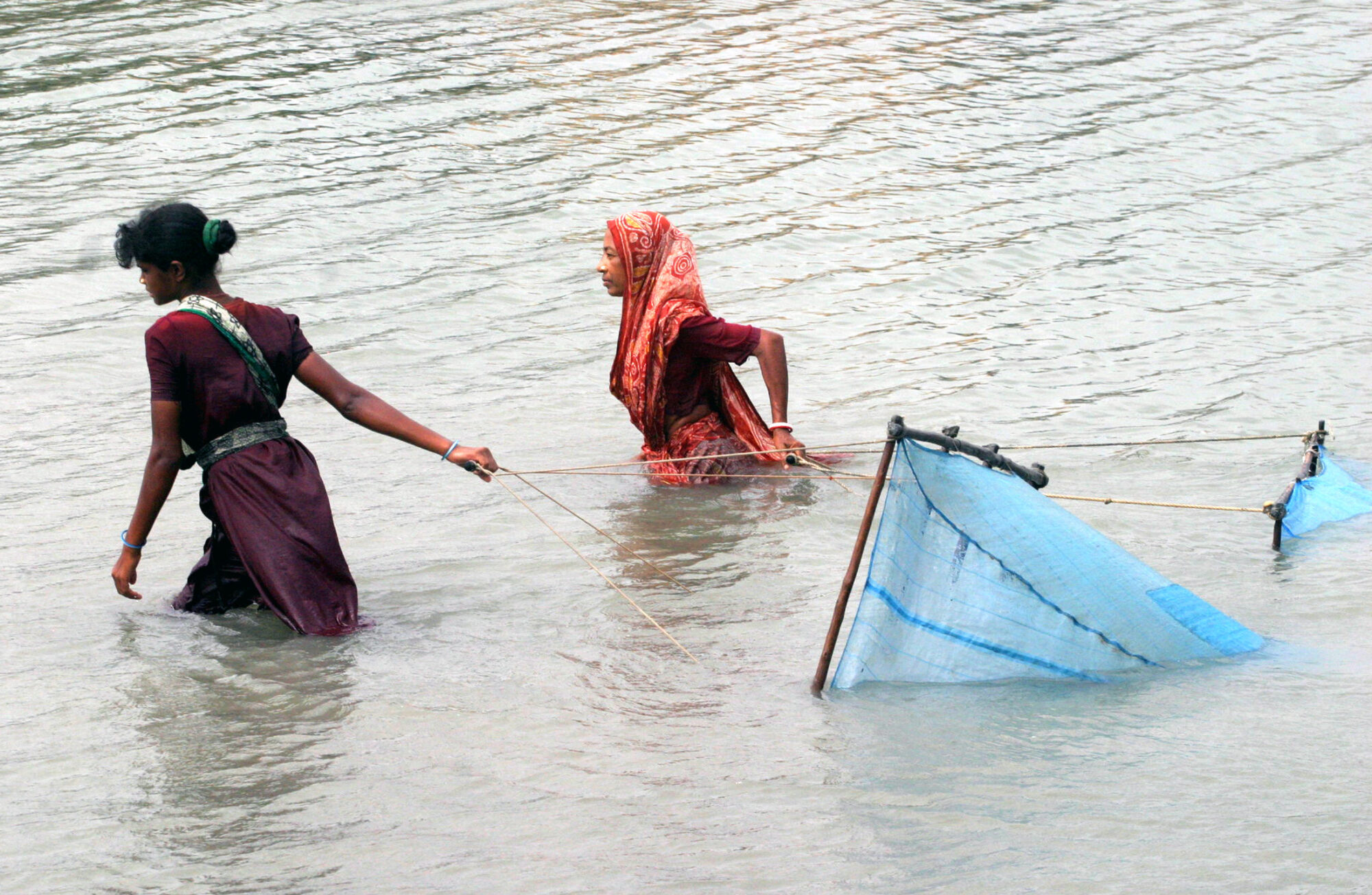
The livelihoods and safety of these women fishing shrimp from a river southwest of Dhaka are increasingly threatened by climate change. Given that 80 percent of Bangladesh’s land is low-lying floodplain, seas are rising and area cyclones are escalating in frequency and severity, one in every seven of the country’s people will be displaced by climate change by 2050. Credit: Reuters/Rafiqur Rahman– stock.adobe.com
The climate crisis impacts workers and their communities in a multitude of ways. Flooding, drought and extreme weather events push workers to migrate, often into low-wage jobs under dangerous conditions. Workers in highly polluting industries face the dual impacts of occupational health and safety hazards and environmental degradation, both of which put their families and communities at risk. Marginalized workers—including minority populations, workers with disabilities, women, youth, migrants and workers in the informal economy—are already experiencing some of the worst impacts of climate change and are often excluded from decision-making processes.
Workers and their unions are uniquely positioned to help build a global climate justice movement, bolstered by their support from, and participation in, broad-based coalitions as well as long-term experience in people-centered policy and legislative advocacy in their respective countries.
As governments and industries plan to transition to cleaner alternatives, workers and their unions must have a meaningful say in the process to ensure that a greener economy is also one that protects worker rights and advances decent work. The needs of workers and their communities must be at the center of climate-responsive policies and practices, including in designing a fair or just transition to a more equitable and sustainable economy as a way to mitigate the impacts of climate change and enable adaptation for impacted communities.
Our Approach
The Solidarity Center recognizes that addressing the climate crisis is critical to ensuring decent work and a strong labor movement in the future. In response, the Solidarity Center supports workers and their unions to:
Our Programs
Solidarity Center initiatives to advance climate justice include:

A community that makes its livelihood from the Amazon is standing up to the Brazilian government that, without consulting the people most affected, is on the verge of undertaking a blasting and dredging project along a river waterway that would destroy their...
A new Solidarity Center study finds that, although Bangladesh claims the global lead in eco-friendly ready-made garment (RMG) manufacturing, government officials, factory owners and global fashion brands are not adequately addressing unhealthy working conditions,...
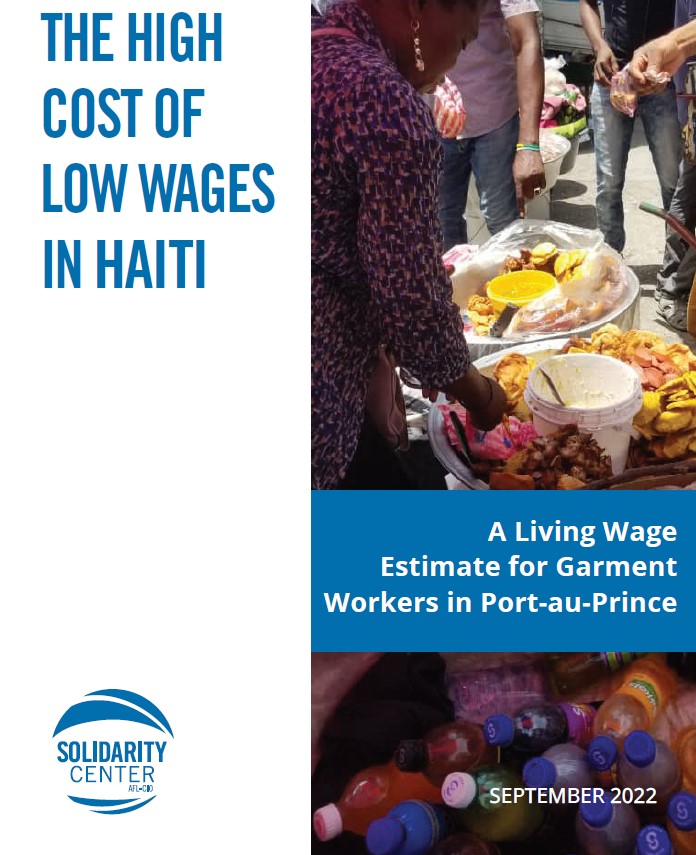
Haitian garment workers face increasing difficulty in covering basic expenditures as prices soar while wages hover far below the cost of living. Download in English and Haitian Creole.
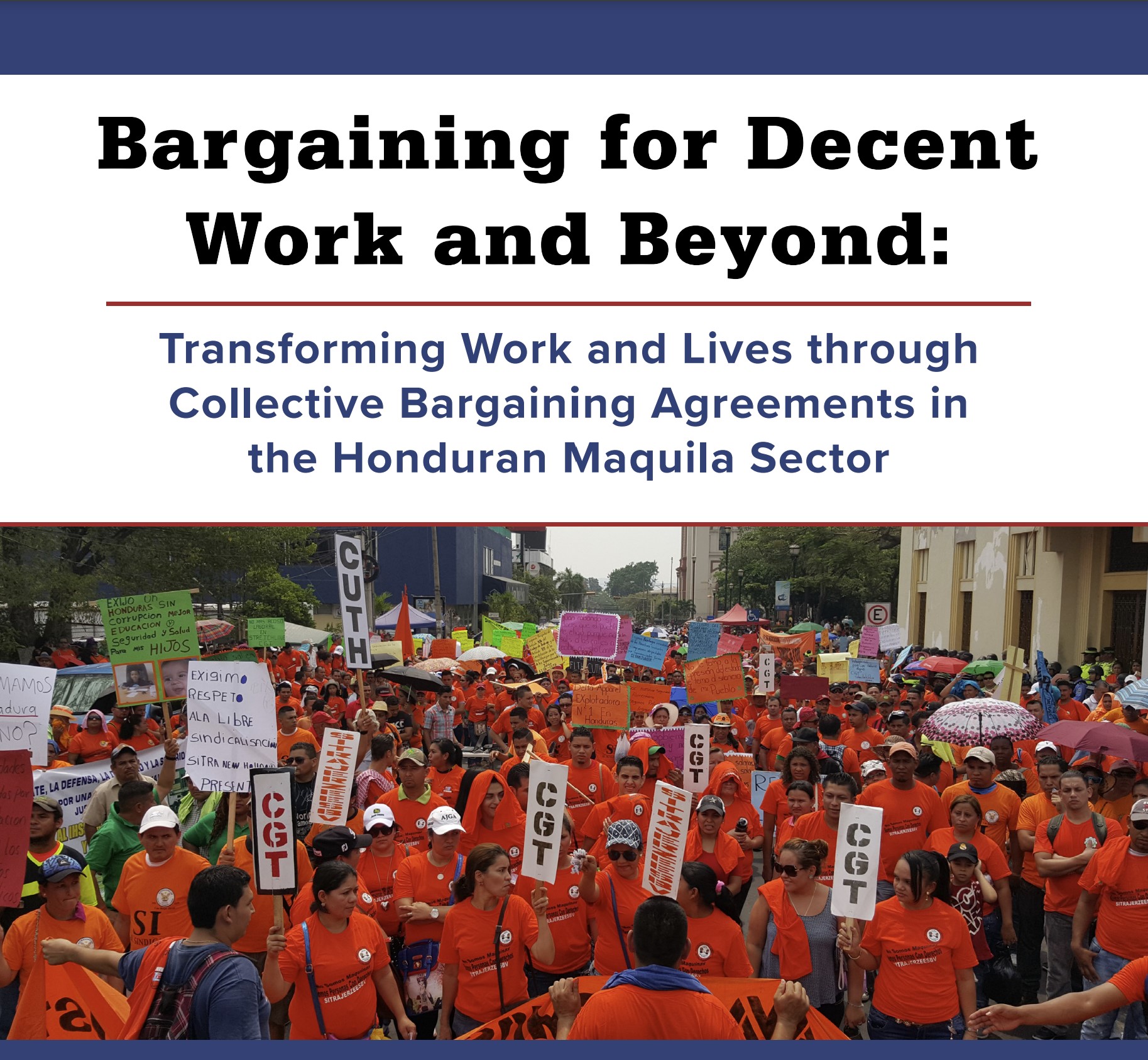
Unions in the Honduran maquila sector bargain to improve work conditions and address gender-based violence at work, and so provide options for those who may migrate to seek jobs, a Solidarity Center report finds. Download in English and Spanish.
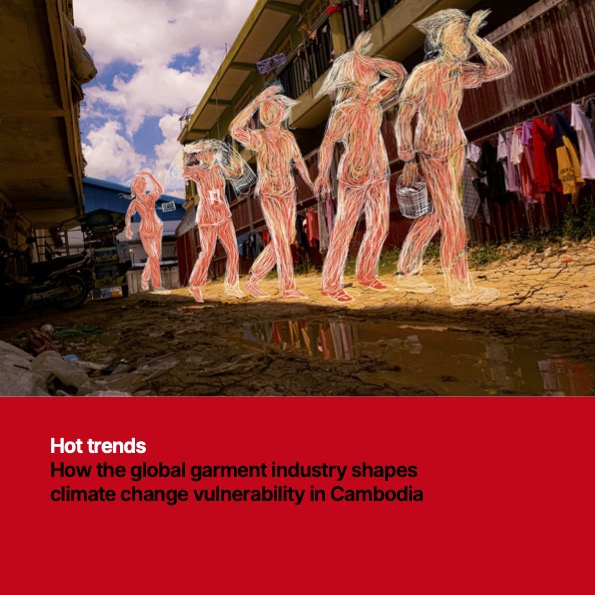
In response to mounting public pressure, companies have moved rapidly to launch media campaigns highlighting their commitment to a green future. The global garment industry is no different. Behind much of this “greenwashing” remains the reality that the garment supply...
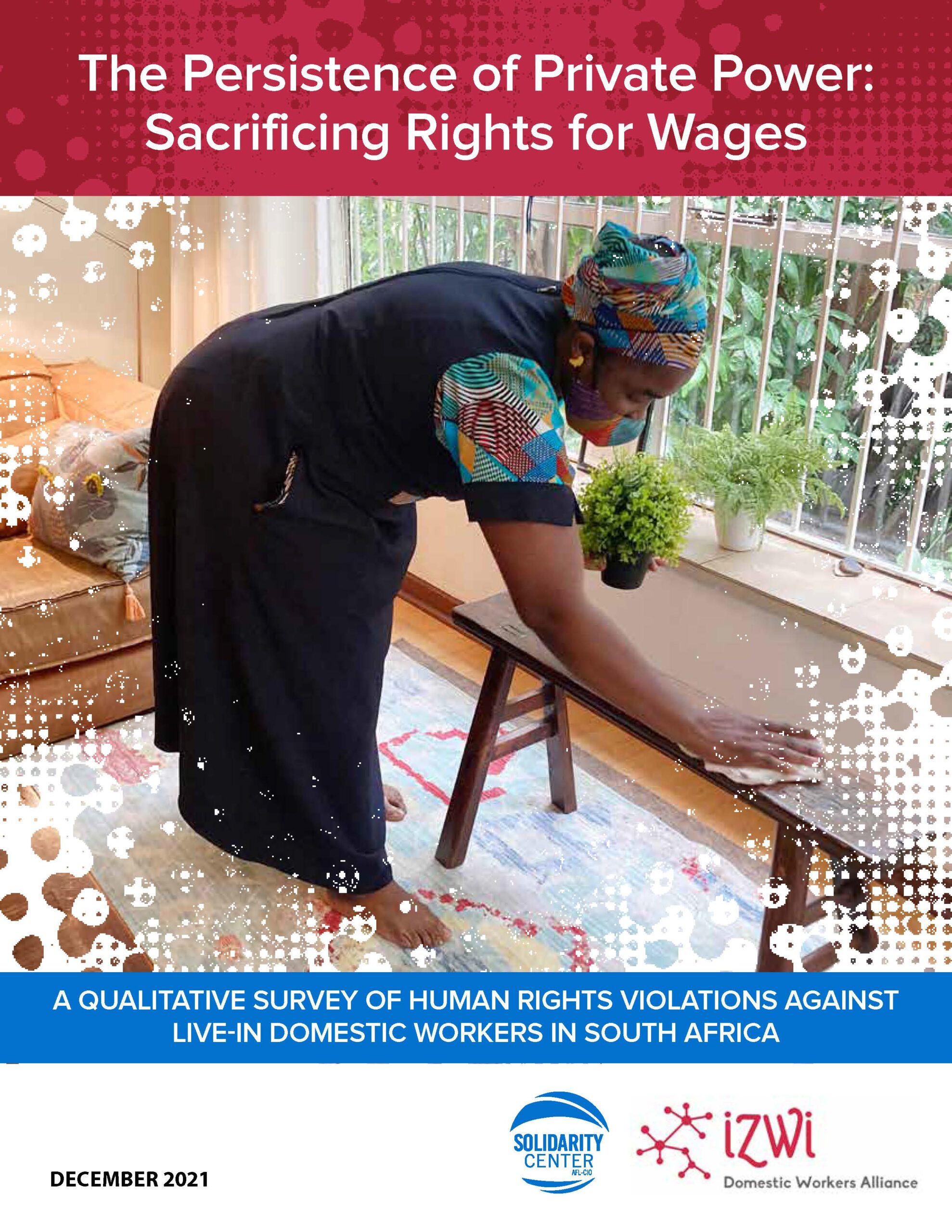
"The Persistence of Private Power: Sacrificing Rights for Wages," a qualitative survey of human rights violations against live-in domestic workers in South Africa, is co-published by IZWI Domestic Workers Alliance—a network of domestic workers in Johannesburg that...
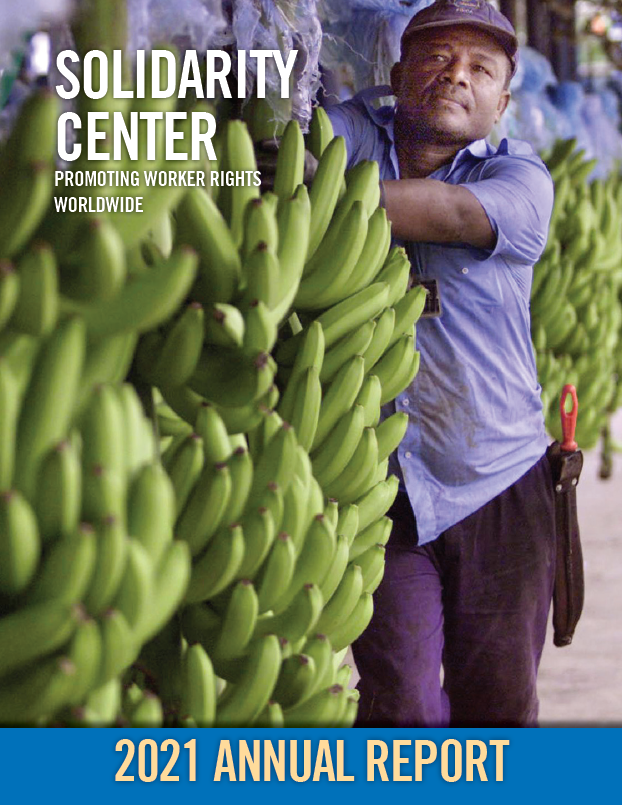
Download here.
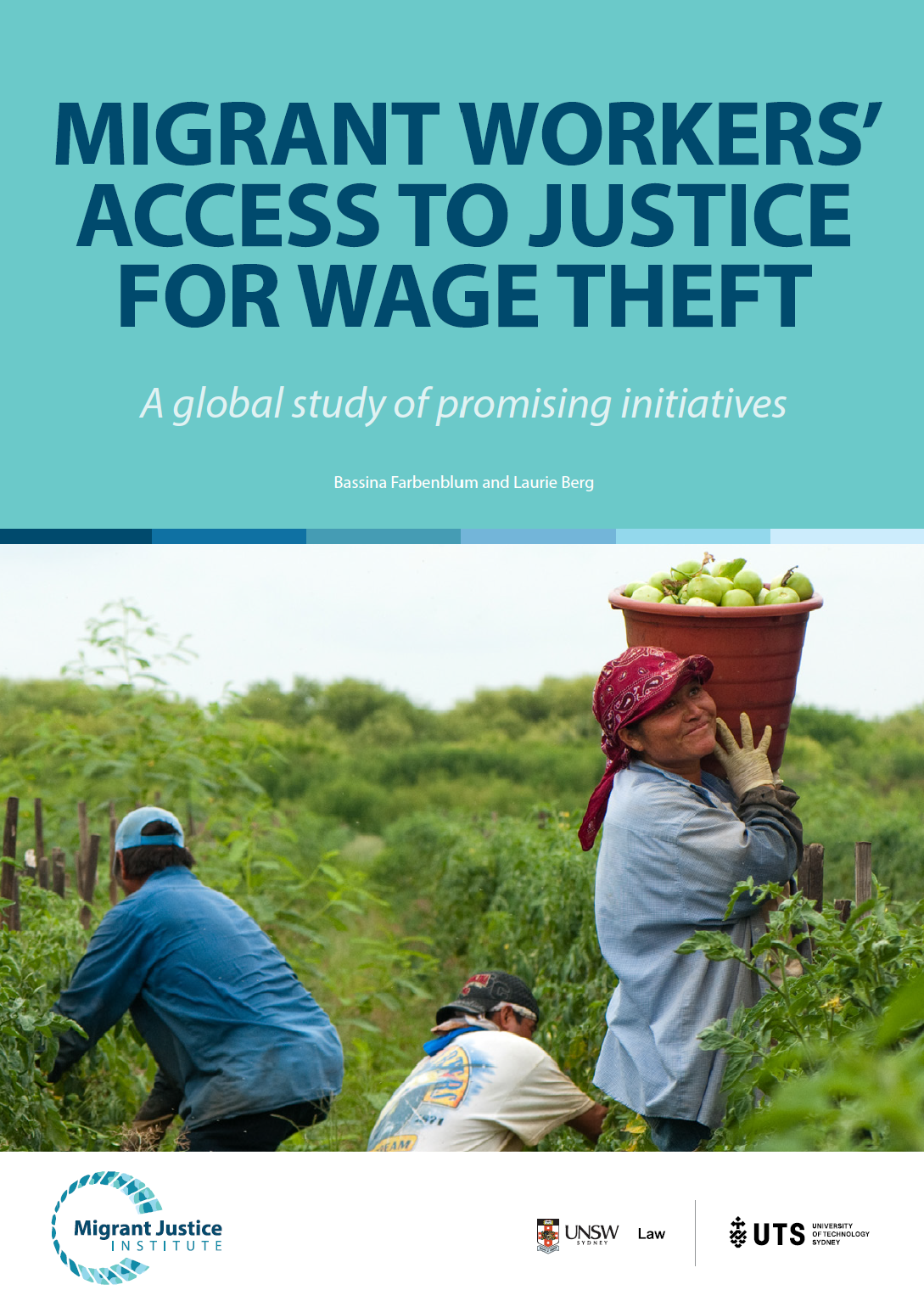
The report identifies initiatives from around the world that enable migrant workers to obtain redress for wage theft through administrative and judicial mechanisms. These initiatives shift risks and burdens of wage recovery away from workers and onto government and...